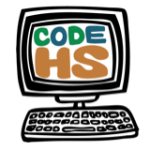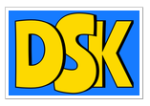Domestic, K-12, Required, Startups, Technology, Universities & Colleges, Venture Capital - Written by Wired Academic on Tuesday, October 30, 2012 17:39 - 0 Comments
EdTech Incubator Imagine K12 Hatches A New Batch Of 11 Upstart Startups
 Kai C. Schwarzer via Compfight
Kai C. Schwarzer via Compfight
Imagine K12 Announces a new cohort of startups that made it through its 3rd graduation. The number of startup accelerators has grown to roughly 100 around the US, up from 4 in 2007 according to TechCrunch and Y Combinator’s estimates. Imagine K12 has emerged as the leader of EdTech startup incubators.
One problem was that more engineers were interested in launching startups than teachers. To remedy that, Imagine K12 recently launched an Educator Day, that allows teachers to demos products. Imagine K12 also created a residency program for teachers, that brings teachers to give feedback to the startups on how teachers might use these products.
Tom Vander Ark writes on EdWeek:
Imagine K12 has landed on a formula: solve a problem, build a beta, get some traction from high fidelity users, build a good deck, polish the pitch, and raise a seed round. This is less about marketing and more about “finding market fit,” said former Google executive Louie, “And we’re so thrilled to see that it’s working.”
Jessie Arora of TeacherSquare.org noted the healthy diversity of the 11 teams in terms of age, race and experience. I noted that Alan, Geoff and Tim are having fun and seem to be providing great advice to folks that want to build a business and make a difference.
Via EdWeek Blog
Rip Empson on TechCrunch writes:
YC founder Paul Graham, former Yahoo and Google execs Tim Brady, Alan Louie and Geoff Ralston created Imagine K12 in 2011 — to provide a network of support for the next generation of young edtech companies. In Mike’s coverage of the accelerator’s launch, he called it the “Y Combinator for education startups.” Given Graham’s early moral support and similarities between the models, the comparison makes a lot of sense. At the same time, given what Y Combinator has become over the last 5 years (and the fact that it now launches 75 startups at a time), it’s an ambitious analogy.
Yet, on Friday, Imagine K12 launched its third cohort of edtech startups at its own Demo Day in Palo Alto, and while it’s still not quite at YC’s level, the accelerator has already come a long way. With each batch, its startups show more promise. [For more on the eleven companies from Imagine K12's third class, see company descriptions below.]
Following the YC and TechStars model, Imagine K12 set out to find promising young startups, offering to support their early coding sessions and product testing with a little seed capital (ranging between $14K to $20K in exchange for an average of 6 percent equity), work space and coaching on everything from accounting to how to pitch investors. Although the founders weren’t initially sure the model would work for education, they received 100 applications for their first class, and things have grown steadily from there.
To be fair, Imagine K12 continues to be a work in progress, as its ratio of teachers-to-engineers among its founding teams still favors the latter, for example. Nonetheless, since its launch last March, the ed-ccelerator experiment has shown some promising results. Of the 19 companies launched in its first two classes, 13 of them have collectively raised over $10 million from angels and VCs, with products created by Imagine K12 grads now in use in over 300K classrooms, reaching over 4 million students.
Via TechCrunch
Here’s the cohort and their descriptions from TechCrunch. Some of them are in Beta and you can find out more information on their web site:
1 ) CHALK
 Chalk is on a mission to help teachers reduce the never-ending pain and time-sink of paperwork. To do this, the startup allows teachers and administrators to easily digitize and distribute any document, along with making it easy to fill out forms automatically, make copies, share docs with their contacts and request information and e-signatures from recipients.
Chalk is on a mission to help teachers reduce the never-ending pain and time-sink of paperwork. To do this, the startup allows teachers and administrators to easily digitize and distribute any document, along with making it easy to fill out forms automatically, make copies, share docs with their contacts and request information and e-signatures from recipients.
Chalk also tracks and stores every response, enabling teachers to get realtime updates on critical documents without having to worry about losing or misplacing files or manilla folders. Streamlining workflow and saving trees means teachers get more green. Environmentally and financially speaking, of course.
Chalk is currently in private beta.
2) CODE HS
 Drawing on the popularity of startups like Codecademy, Treehouse (and many more), Code HS has developed an online program that allows students (and really anyone) to learn the basics of coding — particularly JavaScript. Codin’ ain’t easy and there are already plenty of places for eager, wanna-be-engineers to learn the fundamentals. But rather than taking a purely consumer approach, CodeHS wants to use classrooms as its entry point, giving schools an end-to-end resource for teaching beginner computer science.
Drawing on the popularity of startups like Codecademy, Treehouse (and many more), Code HS has developed an online program that allows students (and really anyone) to learn the basics of coding — particularly JavaScript. Codin’ ain’t easy and there are already plenty of places for eager, wanna-be-engineers to learn the fundamentals. But rather than taking a purely consumer approach, CodeHS wants to use classrooms as its entry point, giving schools an end-to-end resource for teaching beginner computer science.
To do that, through a freemium membership model, the startup provides a curriculum, a library of instructional videos and in-browser programming exercises, along with a support system that gives students access to advice from experts. The goal is to offer CS-class-in-a-box — software that is easy for high schools to integrate and, off-the-shelf-style, doesn’t require teachers to be proficient in computer science to teach it effectively.
3) DIGIT WHIZ
 Though the technical and quantitative-minded may beg to differ, learning math isn’t exactly a blast, and it can be tough for the many without Einstein-ian calculating abilities. Founder Kasey Brown taught math for 19 years and is well-familiar with how to help remedial math students get up to speed.
Though the technical and quantitative-minded may beg to differ, learning math isn’t exactly a blast, and it can be tough for the many without Einstein-ian calculating abilities. Founder Kasey Brown taught math for 19 years and is well-familiar with how to help remedial math students get up to speed.
To help young students learn foundational math skills, Digit Whiz evaluates students abilities, prescribing games and guides that will help them master basic and pre-algebra skills. The service intends to make it easy for teachers to on-board their classes, get started quickly and track student progress. While Brown developed Digit Whiz with her remedial students in mind, the service offers help to students of every ability — and even parents. In essence, Digit Whiz sounds a lot like the math version of another Imagine K12 startup, NoRedInk, which you can find below.
4) EDCANVAS
![]() Founded by former Microsofties, Edcanvas gives teachers a virtual repository for collecting all of their digital materials — a unified place (canvas) where they can collect and curate lessons and presentations. Both teachers and students can drag and drop multimedia, links or text (YouTube videos, Google links or photos from Dropbox, for example), organizing them into a Pinterest-style educational presentation, complete with annotations. Those “canvasses” can then be shared with teachers and students.
Founded by former Microsofties, Edcanvas gives teachers a virtual repository for collecting all of their digital materials — a unified place (canvas) where they can collect and curate lessons and presentations. Both teachers and students can drag and drop multimedia, links or text (YouTube videos, Google links or photos from Dropbox, for example), organizing them into a Pinterest-style educational presentation, complete with annotations. Those “canvasses” can then be shared with teachers and students.
5) TRYUMPH
 Studying can be tedious, boring and something to be suffered through in solitude. Tryumph is on a mission to turn studying into a more social activity, allowing students to learn with friends. The startup’s first app, Drop Some Knowledge (DSK) is a social learning platform that leverages students’ pre-existing social networks to help them learn together about their subject of choice. The idea is to make studying social, competitive and maybe even fun.
Studying can be tedious, boring and something to be suffered through in solitude. Tryumph is on a mission to turn studying into a more social activity, allowing students to learn with friends. The startup’s first app, Drop Some Knowledge (DSK) is a social learning platform that leverages students’ pre-existing social networks to help them learn together about their subject of choice. The idea is to make studying social, competitive and maybe even fun.
6) NOREDINK
 NoRedInk is the humanities-focused sibling of Digit Whiz. Created by long-time high school English teacher Jeff Scheur, the startup offers an easy way for students (and everyone else) to improve their awful grammar and writing skills. NoRedInk’s learning engine generates personalized curricula from students’ interests, creating feedback, tutorials (and even color-coded heat maps) based on students’ preferences and their areas of proficiency.
NoRedInk is the humanities-focused sibling of Digit Whiz. Created by long-time high school English teacher Jeff Scheur, the startup offers an easy way for students (and everyone else) to improve their awful grammar and writing skills. NoRedInk’s learning engine generates personalized curricula from students’ interests, creating feedback, tutorials (and even color-coded heat maps) based on students’ preferences and their areas of proficiency.
The startup won NBC’s $75K Innovation Challenge in September and was featured on the TODAY Show as a result. You can read TC’s in-depth dive into NoRedInk here.
7) RAISE LABS
 Simply put, Raise wants to change the way college scholarships are accessed and distributed. The platform allows students to earn “micro-scholarships” throughout high schools based on their individual achievements in class and overall progress as they get ready for college. On the flip side, Raise gives scholarship providers a better way to track candidates and see who qualifies for achievement-based aid, potentially allocating their scholarships more efficiently and helping a greater number of students achieve their collegiate ambitions. Raise is currently in private beta, and you can sign up on its home page.
Simply put, Raise wants to change the way college scholarships are accessed and distributed. The platform allows students to earn “micro-scholarships” throughout high schools based on their individual achievements in class and overall progress as they get ready for college. On the flip side, Raise gives scholarship providers a better way to track candidates and see who qualifies for achievement-based aid, potentially allocating their scholarships more efficiently and helping a greater number of students achieve their collegiate ambitions. Raise is currently in private beta, and you can sign up on its home page.
8) SECURLY
![]() Securly is building “Web Filtering 2.0″ for schools. The startup offers a cloud-based web filter that “takes five minutes to set up per district” and costs less than typical enterprise solutions. Securly wants to solve the “over blocking” problem in schools by allowing teachers to safely use Google, YouTube and Wikipedia in the classroom without subjecting them to inappropriate content, videos, search results, and so on. Key to its pitch is the fact that schools can take advantage of this utility quickly without setting up hardware or software, meaning less hassle and lower costs.
Securly is building “Web Filtering 2.0″ for schools. The startup offers a cloud-based web filter that “takes five minutes to set up per district” and costs less than typical enterprise solutions. Securly wants to solve the “over blocking” problem in schools by allowing teachers to safely use Google, YouTube and Wikipedia in the classroom without subjecting them to inappropriate content, videos, search results, and so on. Key to its pitch is the fact that schools can take advantage of this utility quickly without setting up hardware or software, meaning less hassle and lower costs.
9) SMARTERCOOKIE
![]() SmarterCookie aims to make it easy for schools, mentors and instructional coaches to use video to support and educate their teachers. Using a phone, laptop camera, or whatever they have, teachers can upload a video of a lesson and share it either privately or with their colleagues. Coaches and schools can then provide time-stamped feedback that is specific and actionable so that teachers can implement that feedback for their next lesson.
SmarterCookie aims to make it easy for schools, mentors and instructional coaches to use video to support and educate their teachers. Using a phone, laptop camera, or whatever they have, teachers can upload a video of a lesson and share it either privately or with their colleagues. Coaches and schools can then provide time-stamped feedback that is specific and actionable so that teachers can implement that feedback for their next lesson.
The more teachers get consistent, targeted feedback, the more effective they become. SmarterCookie takes care of the complexities of private video sharing and feedback channels so that teachers can focus on becoming better, well, teachers.
10) STUDYROOM
 Online classes are all the rage these days and while they make remote learning and continuing education possible, most programs only provide students with solitary or one-to-one learning experiences. StudyRoom creates social networks and communities around online classes, giving students a place to meet their classmates online, collaborate, and study together. By way of a collaborative whiteboard that can be accessed both online and on mobile devices, the startup is hoping to bring study groups and group interaction to online education.
Online classes are all the rage these days and while they make remote learning and continuing education possible, most programs only provide students with solitary or one-to-one learning experiences. StudyRoom creates social networks and communities around online classes, giving students a place to meet their classmates online, collaborate, and study together. By way of a collaborative whiteboard that can be accessed both online and on mobile devices, the startup is hoping to bring study groups and group interaction to online education.
11) TIOKI
 Formerly known as DemoLesson, Tioki is LinkedIn adapted for teachers. The online professional network aims to create a better way for teachers to connect with and learn from other teachers. Part Match.com for mentoring and part networking tool, the startup lets teachers quickly describe themselves and what they’re looking for, then matches them to those that can help answer their questions or offer advice and guidance in all manners of teacher troubles.
Formerly known as DemoLesson, Tioki is LinkedIn adapted for teachers. The online professional network aims to create a better way for teachers to connect with and learn from other teachers. Part Match.com for mentoring and part networking tool, the startup lets teachers quickly describe themselves and what they’re looking for, then matches them to those that can help answer their questions or offer advice and guidance in all manners of teacher troubles.
Beyond that, teachers can create profiles that pull in their relevant links and social profiles, allowing them to share research, show off their accomplishments and link to relevant resources. The goal of which is to help teachers make connections that are actually valuable — and help them to find work, discussions or resources that improve their instruction and potentially their lives.
Campus Buzz
We welcome Tips & Pitches
Latest WA Original Features
-
“Instreamia” Shakes Loose Moss By Launching Spanish Language Mini-MOOC
-
Jörn Loviscach: A German Math Teaching Sensation Emerges On YouTube & Udacity
-
Open University Enters Battle Of The MOOCs, Launches “FutureLearn”
-
Alvaro Salas As A Case Study In Crowd-Funding An Ivy-League Education
-
Jonathan Mugan: How To Build A Free Computer Within A Computer For Your Child
Paul Glader, Managing Editor
@paulglader
Eleni Glader, Policy Editor
Elbert Chu, Innovation Editor
@elbertchu
Biagio Arobba, Web Developer
@barobba
Contributors:
Michael B. Horn
@michaelbhorn
Derek Reed
@derekreed
Annie Murphy Paul
@AnnieMurphyPaul
Frank Catalano
@FrankCatalano
Ryan Craig
@UniVenturesFund
Jonathan Mugan
@JMugan
Terry Heick
@TeachThought
Alison Anderson
@tedrosececi
Ravi Kumar
@ravinepal

The Pulitzer Prize winning investigation newsroom digs into for-profit education.
-
Most Viewed
- Inside Ashford University: A former staffer talks to WiredAcademic
- Infographic: A History Of Information Organization From Stone-Age To Google
- Davos: 12-Year-Old Pakistani Prodigy Girl Talks About Her Online Learning
- Open University Enters Battle Of The MOOCs, Launches "FutureLearn"
- Pearson Llc + Google Expands LMS Business With "OpenClass" System
-
MARKET INTRADAY SNAPSHOT
- Education & Tech Companies We Follow
| APEI | 40.20 |  -0.17 -0.17 |  -0.42% -0.42% | ||
| APOL | 19.01 |  +0.33 +0.33 |  +1.77% +1.77% | ||
| AAPL | 460.16 |  -6.43 -6.43 |  -1.38% -1.38% | ||
| BPI | 10.74 |  -0.09 -0.09 |  -0.83% -0.83% | ||
| CAST | 0.11 |  +0.01 +0.01 |  +10.00% +10.00% | ||
| CECO | 4.08 |  -0.02 -0.02 |  -0.49% -0.49% | ||
| COCO | 2.40 |  -0.02 -0.02 |  -0.83% -0.83% | ||
| CPLA | 32.03 |  -0.41 -0.41 |  -1.26% -1.26% | ||
| DV | 30.69 |  +0.36 +0.36 |  +1.19% +1.19% | ||
| EDMC | 4.03 |  +0.07 +0.07 |  +1.77% +1.77% | ||
| ESI | 18.34 |  +0.04 +0.04 |  +0.22% +0.22% | ||
| GOOG | 792.89 |  +5.07 +5.07 |  +0.64% +0.64% | ||
| LINC | 6.20 |  +0.06 +0.06 |  +0.98% +0.98% | ||
| LOPE | 25.03 |  +0.36 +0.36 |  +1.46% +1.46% | ||
| PEDH | 0.45 |  0.00 0.00 |  +0.00% +0.00% | ||
| PSO | 18.51 |  -0.27 -0.27 |  -1.44% -1.44% | ||
| SABA | 8.61 |  -0.16 -0.16 |  -1.82% -1.82% | ||
| SCHL | 30.87 |  +0.46 +0.46 |  +1.51% +1.51% | ||
| STRA | 51.95 |  -1.54 -1.54 |  -2.88% -2.88% | ||
| WPO | 414.41 |  +5.35 +5.35 |  +1.31% +1.31% |
Domestic, For-Profit, Gainful Employment, Infographics, Personalized Learning, Private, Public, Required, Universities & Colleges - Jan 31, 2013 6:09 - 0 Comments
Infographic: To Get A Degree Or Not To Get A Degree? Here Is An Answer
More In For-Profit
- Ryan Craig: American Clampdown Forcing Forlorn For-Profit Colleges To Look Abroad
- How For-Profit Colleges Major In Marketing & Fail Education
- Infographic: A Graphical Profile Of Today’s Online College Student
- Infographic: A Comparison Of For-Profits v. Non-Profit Online College Data
- Opinion: How “Shareholder Value” Is Destroying For-Profit, Career Colleges
Cost of Education Domestic Education Quality Ethics For-Profit Friend, Fraud, or Fishy Gainful Employment Graduation Rates Legislation Minorities Opinion Recruitment Regulatory Required Retention Rates Student Loans Universities & Colleges
MOOCs, Required, Technology - Feb 16, 2013 10:04 - 0 Comments
MOOC Monitor: Must Reads This Week
More In Technology
- Infographic: Rise of the MOOCs
- Smart Cities Part II: Why DC Is The Planetary Hub Of Online Learning
- Five Questions: Polling EdTech Startup UnderstoodIt’s Liam Kaufman
- Infographic: The Future of Higher Education
- Anne Collier: Study Shows eBooks Gaining Larger Share & Boosting Overall Reading Habits
Domestic K-12 Parents Reading / Literature Required Technology
Charter, Cost of Education, Domestic, Education Quality, Friend, Fraud, or Fishy, K-12, Minorities, Regulatory, Required - Feb 7, 2013 12:23 - 0 Comments
Should For-Profit Companies Manage K-12 Schools? A Skeptical Review
More In Friend, Fraud, or Fishy
- A Letter To Sen. Tom Harkin About For-Profit Charter Schools
- Ryan Craig: American Clampdown Forcing Forlorn For-Profit Colleges To Look Abroad
- Opinion: The Problem With Deceptive Degree Aggregators In The Search For Online Courses & Degrees
- How For-Profit Colleges Major In Marketing & Fail Education
- Infographic: A Comparison Of For-Profits v. Non-Profit Online College Data
Cost of Education Domestic For-Profit Friend, Fraud, or Fishy Graduation Rates Infographics Recruitment Required Universities & Colleges


Leave a Reply